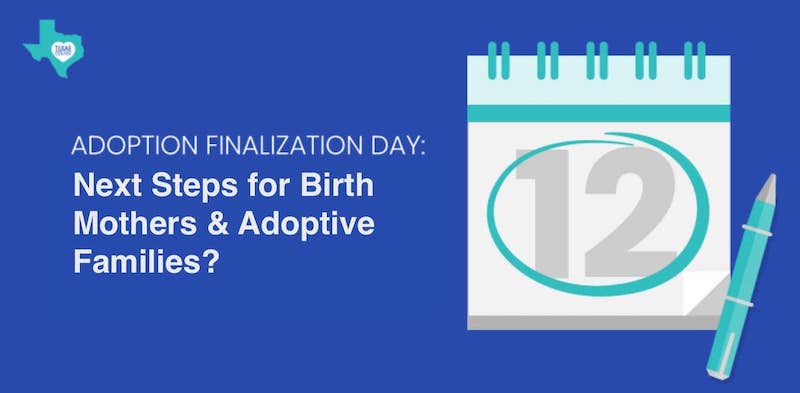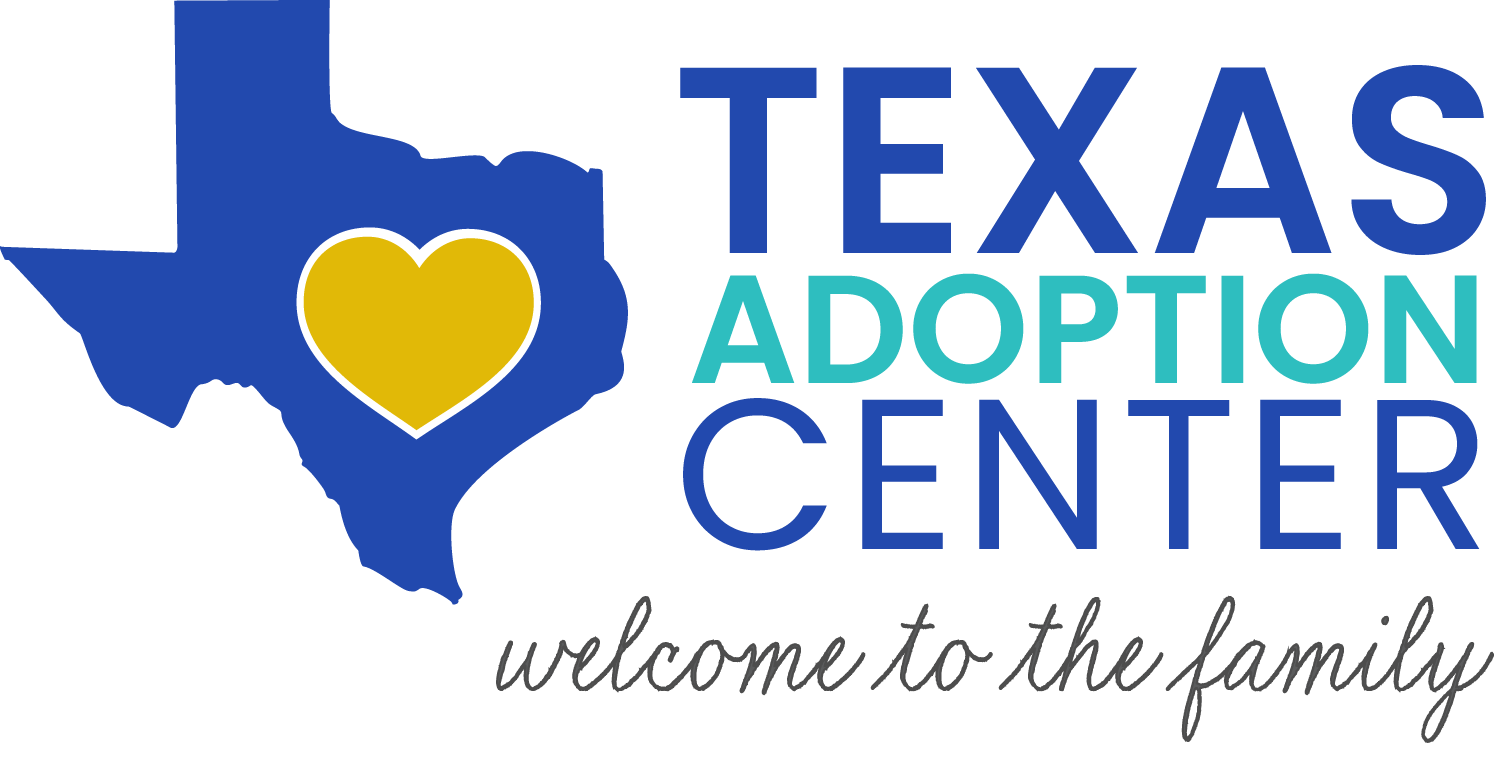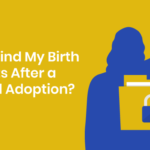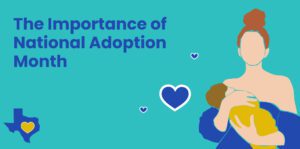
For adoptive parents and birth mothers, adoption finalization is a moment that signifies how far they’ve come in their journey of loving this child they share. However, before the adoption journey is complete, there are a few steps to go through before a child becomes a “legal” member of this new family.
In this guide, we walk through everything you need to know to prepare for adoption finalization day. This includes paperwork, post-placement visits, and final hearings. We’ll also discuss post-adoption support for birth mothers seeking emotional guidance.
Adoption Finalization Requirements
How long does it take to finalize an adoption? The answer varies as there is no one set timeline. State regulations, local courts, and individual case matters all determine the length of an adoption case.
Generally speaking in Texas, you can accept a finalization hearing six months after a child’s placement in their new home. At the minimum, every adoption case must meet the following requirements:
- Termination of parental rights: Both birth parents must consent to relinquish their rights as legal guardians of a child. Texas adoption laws dictate that a child age 12 or older must provide their consent to an adoption.
- Compliance with the Indian Child Welfare Act (ICWA): Designed to protect American Indian children who are members of federally-recognized tribes, this act ensures that special adoption procedures are conducted when dealing with tribal cases.
- Compliance with Interstate Compact on the Placement of Children (ICPC): This agreement ensures that children adopted across state lines receive the same protections they would have received had they remained in their home states.
- Post-Placement Visits: Every state requires a certain number of visits by a licensed home study provider to ensure that a child is adjusting well to their new environment. Texas normally requires five visits.
Once all the post-placement requirements are completed, you can expect a final court hearing. This is when a judge issues a final decree of adoption, making the child a legal member of your family. Court hearings are nothing to be concerned about. Finalization hearings last no more than one hour where you’ll answer basic questions. These include your motive for adopting, your ability for parenting, and other questions about your case.
Your adoption attorney will be by your side after being sworn in. They can help you address any questions and reassure any concerns you may have.
Post-Adoption Finalization Steps
After an adoption process is complete, make sure to fill out the proper documents. These include the following:
- Amended birth certificate: Make sure to order an amended birth certificate that lists you as the child’s new legal guardian. Each state has different requirements when obtaining an amended certificate, so be sure to check your state’s regulations.
- Social Security Number: After obtaining your child’s birth certificate, apply for a new social security number. If your child was placed for adoption at birth, it is likely that they do not yet have a social security number.
- Medical and Life Insurance: Check in with your employer or an insurance company in obtaining proper healthcare insurance for your child.
- Adoption Tax Credit: Taxpayers who adopted may be eligible for an adoption tax credit. To claim eligibility, keep a list of your qualified adoption expenses and submit the proper documentation when filing your taxes.
Next Steps for Birth Mothers
If you’re a birth mother, you may have realized that adoption finalization day can evoke mixed emotions that may be difficult to manage. These include feelings of guilt, shame, or uncertainty. We want you to understand that these emotions are completely normal. The effects of adoption on birth mothers go far beyond the legal process.
As you navigate this journey, give yourself time to heal and process the intense feelings you might be experiencing. If and when you feel ready to reach out for support, there are resources ready to help you along the way. Non-profit organizations such as Birth Mother Assistance can set you up with support groups after an adoption placement.
If your case is an open adoption, you may be able to maintain an ongoing relationship with your child. In this case, reach out to the adoptive parents and come up with solutions so you can remain a vital part of your child’s life. Remember, no matter where you are in your post-adoption journey, there is no shame in sharing your struggles and reaching out for support.
Contact Texas Adoption Center
Here at Texas Adoption Center, we applaud the hopeful parents opening their homes to a new family member and the brave first mothers seeking an opportunity for their child.
If you have any questions concerning adoption finalization day, connect with us. We offer personalized post-adoption services, complete with ongoing emotional support for all parties involved.
Contact us today to get started on your next steps.






